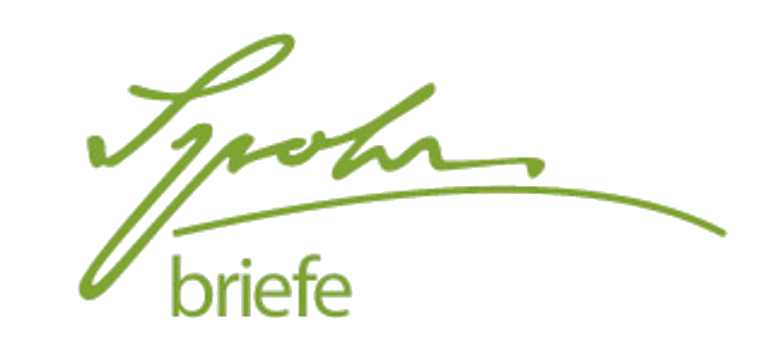1846111034
Edward Taylor an Louis Spohr in Kassel
London, Dienstag 10. November 1846
Autograf: Universitätsbibliothek Kassel - Landesbibliothek und Murhardsche Bibliothek der Stadt Kassel (D-Kl), Sign. 4° Ms. Hass. 287[Taylor, E.:46
via France
Dr. Louis Spohr
Hesse Cassel
Germany
Gresham College
London
Nov. 10. 1846
My Dear and honoured Friend
Your last welcome letter assured me of your good health1 and also conveyed to me the pleasing intelligence that you intended to set to music some of the poetry of Milton.2 I do indeed rejoice to hear it, and hope that your acquaintance with him will ripen into greater intimacy, and had you to think again of what I once ventured to sugggest as a fit subject for your Muse – I mean his ”Comus,“3 which I regard as the mot perfect specimen of the Lyric Drama that the world has get seen. When we meet I should like to talk over this subject with you. Perhaps you are aware that the ”Morning Hymn of Adam & Eve“ from the ”Paradise Lost“ has been set by Galliard, & (to a German translation) by one of your countrymen more recently. His name I forgot.4
I am anxious to know which of Milton‘s poems you have selected. The ”Ode on the Nativity“5 always struck me as capable of being well set to music.
If Madame Spohr has not read to you his Sonnet, beginning ”Blast pair of Syrens,“6 pray request her to do so. It is the most beautiful & elevating description of the combined power of Music & Poetry – (or, as he calls them ”Voice & Verse“) upon the heart that I ever read.
Now to business. I have been again requested by the Committee of the Sacred Harmonic Society to ask if they may look forward to the pleasure of seeing you in the ensuing year. They make their arrangements for the Season some time before hand, and thy are anxious to renew this application to you thus early in order that you may not be prevented by any prior engagement. The first question, then, is ”Will you come?“ the second ”When?“ Their arrangements, as to time, will, of course, be regulated by your convenience – but I suppose the latter end of June will be your period of freedom.
Your Prince‘s7 refusal of permission for you to go to Vienna excited my indignation in no small degree. I will not trust myself to say on paper what I think of his conduct.
The ”Fall of Babylon“ was performed this year at the Hereford Festival very well & with great success.8 It has also been performed at Bristol9, with equal success, under the direction of my Friend Corfe, at whose house you may remember we dined.10
I have had the pleasure of seeing & hearing Miss Speyer, during one of my visits to London: and I exceedingly regret that I can shew her so little civility & render her so little assistance. But I am quite out of the profession, & I have no longer the slightest influence in11 it. Margaret regrets that her long distance from London (215 Miles) prevents her seeing Miss Speyer, and renewing her acquaintance with her.
You hear, perhaps, that we are to have another Italian Opera at Covent Garden Theatre, under the direction of Costa. How far such an experiment will succeed time must shew. The attempt to establish a second Italian Opera House in London never get succeeded. Handel tried it, & failed. It was tried again within my own recollection & again failed.
I have but lately come to Town from Devonshire, where I left my poor Wife12 in her usual state of suffering. She is quite helpless. Kate13 is better. Margaret quite well. She complains that she is losing her German, & says that she is ashamed to write a German letter.
My best compliments await Madame Spohr, Madame de Malsburg & my other kind friends at Cassel. Believe me, my dear Friend
Your with the truest esteem Edw. Taylor
| Autor(en): | Taylor, Edward |
| Adressat(en): | Spohr, Louis |
| Erwähnte Personen: | Corfe, John Davis Costa, Michael Friedrich Wilhelm Hessen-Kassel, Kurfürst Malsburg, Caroline von der Milton, John Speyer, Antonie Spohr, Marianne Taylor, Deborah Taylor, Margaret Whittle, Kate |
| Erwähnte Kompositionen: | Galliard, Johann Ernst : The Hymn of Adam and Eve Reichardt, Johann Friedrich : Miltons Morgengesang Spohr, Louis : Der Fall Babylons Spohr, Louis : Psalm 84, WoO 72 |
| Erwähnte Orte: | Bristol Hereford Wien |
| Erwähnte Institutionen: | Covent Garden <London> Sacred Harmonic Society <London> Three Choirs Festival <Hereford> |
| Zitierlink: | www.spohr-briefe.de/briefe-einzelansicht?m=1846111034 |
Dieser Brief ist die Antwort auf Spohr an Taylor, 13.09.1846. Der Postweg dieses Briefs überschnitt sich mit Spohr an Taylor, 09.11.1846. Spohr beantwortete diesen Brief am 26.11.1846.
[1] „health“ über der Zeile eingefügt.
[2] Psalm 84.
[3] Vgl. „Comus“, in: John, Milton, Paradise regained, Samson Agonistes, Comus and Arcades, London 1816.
[4] Möglicherweise J[ohann] F[riedrich] Reichardt, Hymne. Miltons Morgengesang, Kassel [1808].
[5] Vgl. „On the Morning of Christ‘s Nativity“, in: The Poetical Works of John Milton, Bd. 6, London 31826, S. 3-6.
[6] Vgl. „At a Solemn Music“, in: The Poems of John Milton, Bd. 1, London 1859, S. 40ff.
[7] Der spätere Kurfürst Friedrich Wilhelm.
[8] Vgl. „The Hereford Festival“, in: Musical World 21 (1846), S. 443f., hier S. 444.
[9] Vgl. „Bristol“, in: ebd., S. 485.
[10] Vgl. Marianne Spohr, Tagebucheintrag 15.07.1843.
[11] „in“ über der Zeile eingefügt.
[12] Deborah Taylor.
[13] Catharine Whittle, geb. Taylor.
Kommentar und Verschlagwortung, soweit in den Anmerkungen nicht anders angegeben: Karl Traugott Goldbach (05.02.2019).
